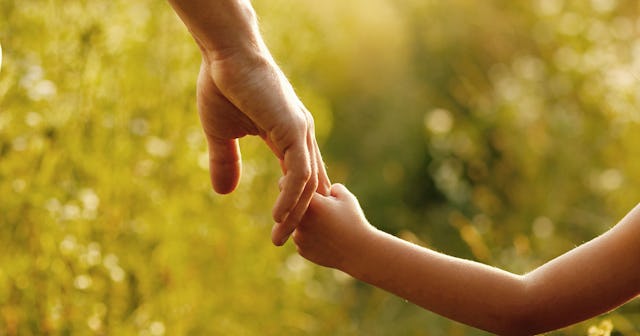How I Learned To Appreciate My Overprotective Immigrant Upbringing

In my immigrant family, it was uncommon for my parents to make overt expressions of love or affection, whether physical or verbal. It’s often accepted among my peers that the main way our Chinese parents expressed concern was through food. “Eat more!” they would goad their offspring, even when one’s stomach reached its maximum capacity. But my dad’s preferred method of showing concern was through exhibiting paranoia over the physical safety of myself and my brother.
Growing up, we were forbidden to engage in any activity that may lead to injury. That meant that I was not allowed to ski despite living minutes from the slopes, and that I had to sit out and watch during my friends’ ice skating parties. For my brother, his nut allergy meant that he was not allowed to participate in virtually all extracurricular activities. Fantasizing about scouting, he resorted to setting up a small tent in his bedroom. Team sports were of course out of the question for both of us.
My dad’s paranoia seemed to grow as he aged. When I was a teen, during a family vacation during which we visited an outdoor mall in an unfamiliar city, I offered to seek out the taxi stand. Disoriented, I got lost and took more time than expected to make it back. My dad’s face was red and puffy as I approached. “I was sure you had been kidnapped!” he sputtered. He had been on the cusp of calling the police. And when my brother missed his flight home from college later on, my dad called me in hysterics. “His plane must have been hijacked!” he claimed, jumping to the most extreme of conclusions.
After I graduated from college, I was eager to keep my distance and accepted a job on the opposite coast. I needed to take full control of my life and did not want my dad to cause me undue stress even if I recognized that his intentions were good.
But he still tried to extend his control from afar. My first year in Washington, DC coincided with the start of the second Iraq War. Concerned about the risk of a chemical attack, my dad bought two child’s size Israeli gas masks for me from eBay. “You must keep one with you at all times and store the other in the office!” he commanded.
And I was to stop using the subway, instead taking the bus at all times, which he considered less vulnerable to an attack. He was so insistent that I felt like I had to agree. Rubber gas mask stuffed in my bag, I felt ridiculous. I took the bus to and from work which doubled my commute. After two weeks during which I questioned my own sanity, I stashed my gas masks away and took the subway again.
The same year, the SARS outbreak hit Asia. Despite the global shortage of Tamiflu, the drug used to treat the virus, my dad somehow managed to hustle a small supply for his family. His tone was urgent as he notified me via telephone that a packet of Tamiflu was on its way to me. “Don’t share it with anyone,” he cautioned. “This could save your life.”
“Okay, thank you,” I responded. I appreciated that my survival meant something to him, but I did not agree with the need to live life in fear.
Years later, my pregnancy coincided with the Zika virus outbreak in South America. The calls started coming in regularly. “Don’t go outside!” my dad commanded. “You have to protect the baby. Keep the windows closed!” I knew better than to explain that there were no reports of the virus reaching anywhere near me. Instead, I made a promise to my unborn child that he would have a less restrained, more carefree “normal” childhood.
And then COVID hit. In the last ten years, my dad has had two serious heart attacks as well as a spate of other chronic illnesses, some diagnosed but not others, rendering him very high-risk. He stopped leaving his house and started praying to Jesus and Buddha for health and protection from the virus. “I will definitely die if I get it,” he expressed in a phone conversation, sounding deflated. And I recognized there may be some truth to his words.
Witnessing him in such a vulnerable state for the first time in my life released a flood of emotions deep in me, even if I couldn’t verbally express them, so accustomed are we to leaving most things unsaid. It seemed unfair that I had intentionally blocked him out of so much of my adult life, even though it had been for my own mental health. I realized that he had rarely expressed concern for himself before, instead focusing his attention on his family, showing love in the only way he knew how.
I continue to live a multi-hour plane ride from my dad, who despite getting his vaccine earlier this year does not want to risk travel. It’s been nearly two years since my five-year-old last saw him in person given that my son cannot travel without being quarantined, per school rules. The pandemic has made me realize, like so many others, of how precious relationships are and how we must not take each other for granted.
I’m hoping that we are able to make the trip to visit soon. Even if the idea of me giving him a hug is still super awkward (I swear our last hug was probably when I was in Kindergarten), I am already envisioning the big hug my son will give his grandfather and how my dad’s eyes will light up with joy.
This article was originally published on